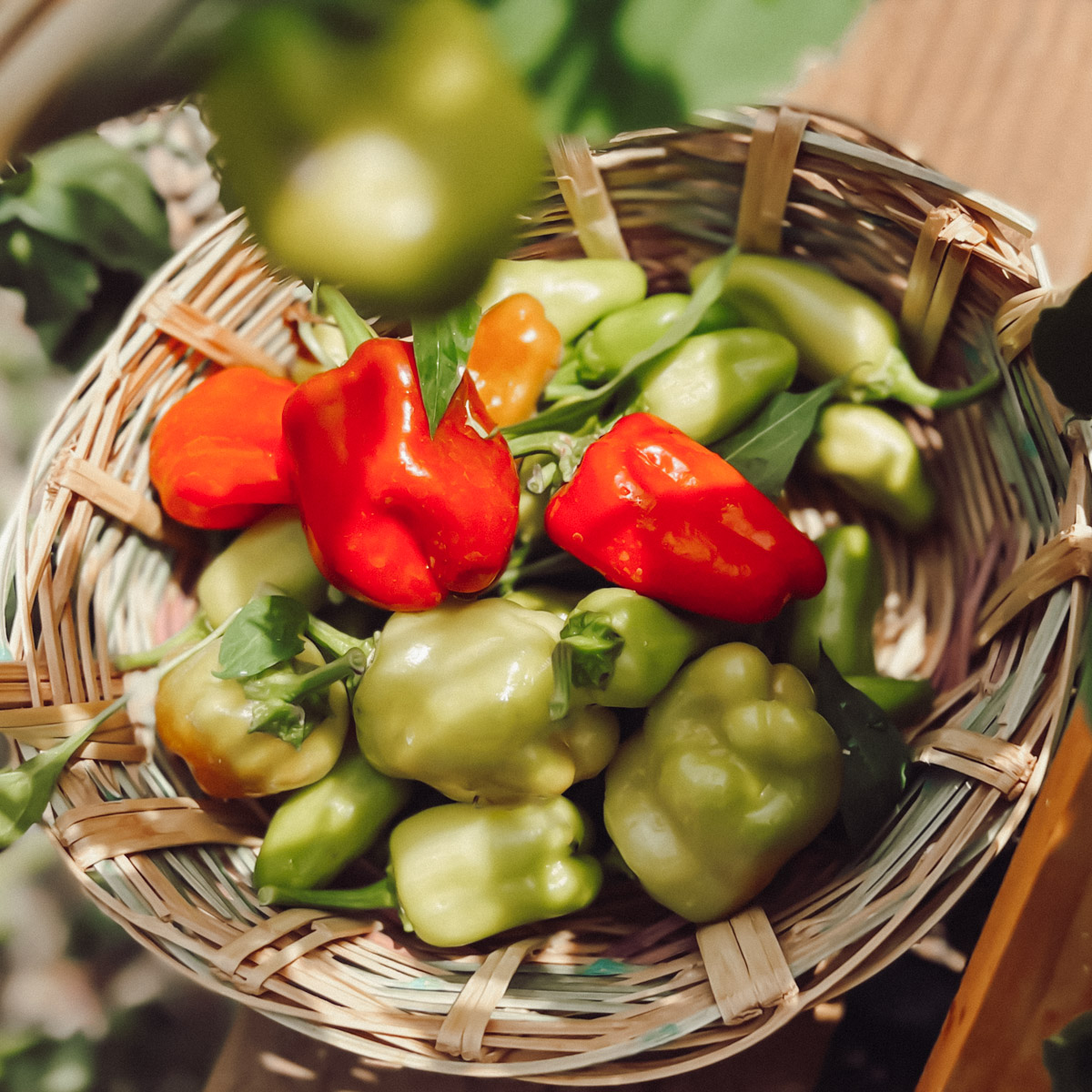Premier Fertilizers for Peppers: Enhance Your Harvest High Quality
Premier Fertilizers for Peppers: Enhance Your Harvest High Quality
Blog Article
Organic Vs. Synthetic Fertilizers: Which Is Best for Supporting Healthy And Balanced Pepper Plants?
In the world of supporting healthy and balanced pepper plants, the choice between synthetic and organic plant foods stands as a pivotal choice with significant ramifications. While both alternatives aim to provide vital nutrients to sustain plant growth, the nuances of their influence on the soil, plant health and wellness, and the atmosphere trigger a discussion that mirrors throughout the horticulture area. Comprehending the distinct advantages and potential pitfalls of each plant food type is essential for pepper growers looking for to enhance their yields while keeping a lasting and eco-conscious technique.
Advantages of Organic Plant Foods
Organic fertilizers provide an environmentally-friendly and lasting strategy to nourishing pepper plants, offering important nutrients without the usage of artificial chemicals. These natural fertilizers are acquired from natural sources such as compost, manure, bone dish, and algae, advertising soil wellness and biodiversity. Unlike artificial fertilizers, natural alternatives release nutrients gradually, ensuring a balanced and consistent supply for pepper plants to thrive.
One considerable advantage of natural plant foods is their capability to boost soil structure and water retention. By improving dirt health, organic fertilizers advertise beneficial microbial activity, which helps in nutrient uptake by pepper plants. In addition, natural fertilizers decrease the danger of chemical run-off, protecting water sources from contamination and guarding the environment.
Furthermore, natural plant foods add to lasting soil fertility by advertising the development of beneficial dirt microorganisms. These microorganisms aid break down natural issue, launching nutrients in a form that is quickly obtainable to pepper plants. best fertilizers for peppers. By fostering a healthy soil environment, natural plant foods support sustainable pepper cultivation practices that profit both plants and the setting
Disadvantages of Artificial Fertilizers
Synthetic fertilizers, as opposed to their natural equivalents, posture various drawbacks when utilized to nourish pepper plants, affecting both plant wellness and ecological sustainability. One significant downside of synthetic fertilizers is their propensity to seep nutrients from the dirt quickly. This fast leaching can cause vitamins and mineral imbalances in the soil, triggering plants to struggle with toxicities or shortages. Additionally, synthetic fertilizers can harm advantageous soil microorganisms, such as earthworms and advantageous bacteria, interrupting the dirt ecological community's equilibrium.
Moreover, the overuse of synthetic fertilizers can add to water air pollution. Excess plant foods not soaked up by plants can clean away right into water bodies, resulting in eutrophication, where algae blooms diminish oxygen degrees in the water, hurting water life. Artificial plant foods are commonly acquired from non-renewable resources, such as fossil fuels, contributing to carbon exhausts and ecological deterioration throughout their production.
Nutrient Absorption Contrast
When comparing organic and synthetic fertilizers in terms of nutrient absorption, organic plant foods have the advantage of offering a more balanced and slow-release resource of nutrients. Organic fertilizers include a range of macro and trace elements that are not just valuable for the plants but also promote healthy soil microbial task, which assists in nutrient uptake.
Furthermore, organic fertilizers enhance dirt framework and water retention ability, permitting pepper plants to accessibility nutrients extra successfully. This better dirt high quality Source assists in root development, enabling better nutrient absorption. Artificial plant foods, although originally improving plant growth due to their high nutrient concentrations, might impede long-lasting nutrient absorption by degrading soil wellness with time.
Ecological Effect Considerations

On the other hand, synthetic plant foods, although often even more focused and immediately readily available to plants, can have destructive impacts on the environment if not used correctly (best fertilizers for peppers). Their manufacturing requires high power inputs, leading to greenhouse gas exhausts and adding to environment change. Additionally, the runoff of excess synthetic plant foods can contaminate water resources, resulting in eutrophication and damaging water ecosystems.
Finest Plant Food Practices for Peppers
To accomplish this, it is necessary to comply with ideal fertilizer methods tailored to the particular requirements of pepper plants. One vital technique is to do a soil test prior to using any plant foods.
An additional crucial technique is to fertilize pepper plants at the ideal time. Normally, peppers gain from getting plant food at growing and after that once more when they start to blossom. Over-fertilizing can cause nutrient discrepancies and damage the plants, so it is important to adhere to suggested application prices.
Furthermore, picking a well balanced fertilizer with an NPK proportion that fits pepper plants' requirements is essential. Eventually, combining organic and artificial fertilizers judiciously can aid nurture healthy and balanced pepper plants while decreasing environmental impact.
Final Thought

Organic plant foods supply a sustainable and environmentally-friendly strategy to beneficial pepper plants, giving important nutrients without the use of artificial chemicals. Unlike artificial plant foods, natural choices release Going Here nutrients slowly, making sure a constant and balanced supply for pepper plants to grow.
Artificial plant foods, in contrast to their natural counterparts, present numerous drawbacks when made use of to nurture pepper plants, affecting both plant wellness and environmental sustainability. When contrasting synthetic and natural fertilizers in terms of nutrient absorption, natural fertilizers have the advantage of providing an extra well balanced and slow-release resource of nutrients.Additionally, organic fertilizers improve dirt framework and water retention capacity, allowing pepper plants to gain access to nutrients a lot more efficiently.
Report this page